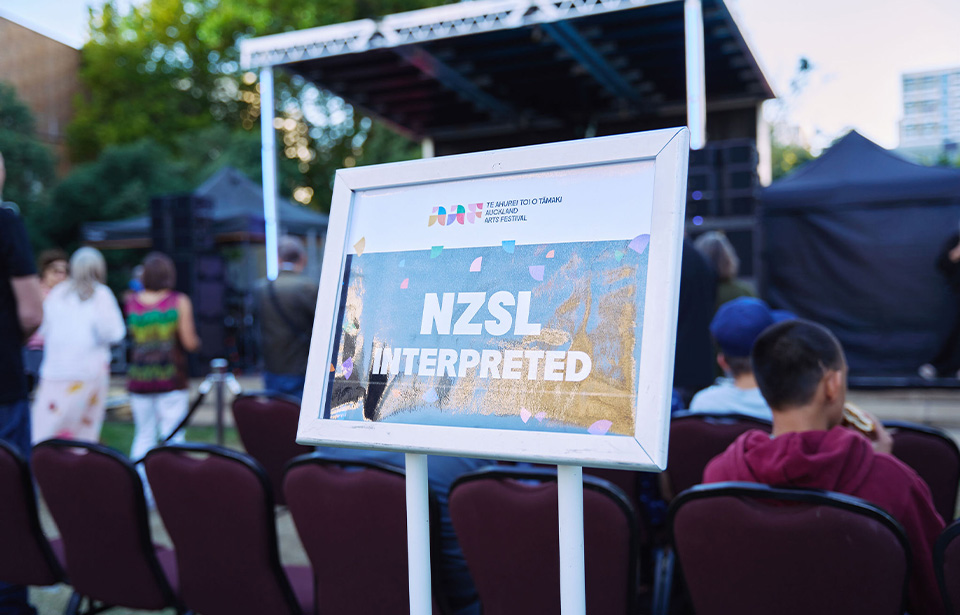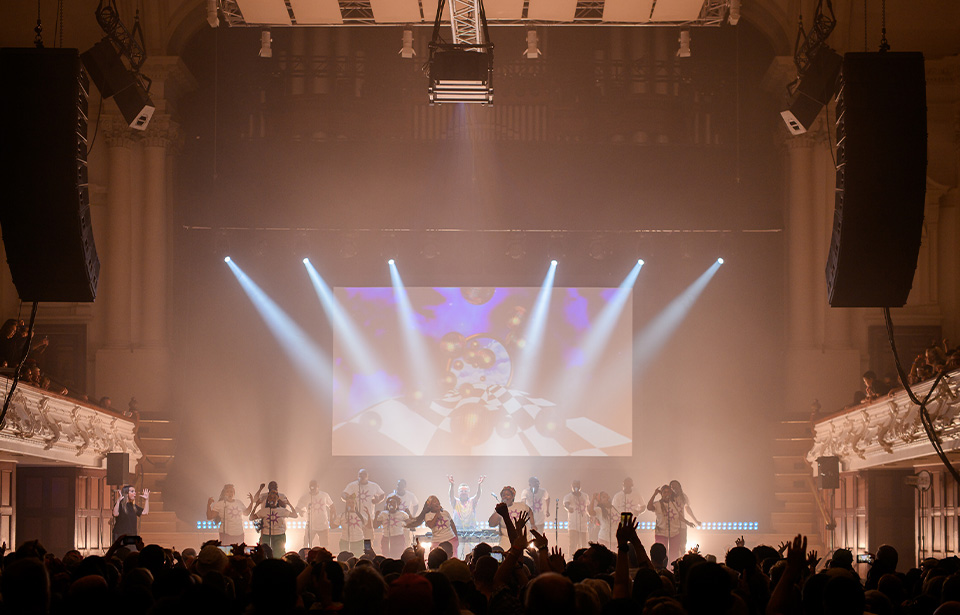Auckland Arts Festival puts accessibility first
• April 2, 2025

The Auckland Arts Festival promises to create a more accessible and inclusive event. Photo: Jinki Cambronero (Supplied)
The Deaf community found the Auckland Arts Festival (AAF) more inclusive this year after access improvements.
From March 6 to 23, the festival presented a range of shows designed to accommodate disabled audience members, including New Zealand Sign Language (NZSL) interpreted performances.
This year, the festival has introduced an NZSL-interpreted music concert, History of House, to attract a wider range of Deaf and Hard of Hearing audience members.
AAF Access and Inclusion programme coordinator, Hannah Slade, says it was hard to know what the Deaf community would be interested in and settled on History of House after receiving input from the festival’s forum and the Deaf Club.
“The music was a little tricky because in some ways it’s quite hard to know what is going to appeal to a broad range of the Deaf community.
“We went for History of House, which is something that already had quite a large bass element to it and was going to be pretty spectacular in the Town Hall,” says Slade.
“It got feedback from the [Deaf] community that this [History of House] will attract the younger Deaf audience into the festival, so that they can become festival supporters.”

The AAF ensured their events were accessible, such as the opening ceremony being NZSL-interpreted. Photo: John Rata (supplied)
Slade says the event’s accessibility plan has been operating since 2017 and is well established.
“Within the Accessible Programme we have three pillars: the Deaf and Hard of Hearing Programme, the Blind and Low Vision Programme, and the Relaxed Performance Programme.”
A statement by Creative NZ, a key funder of the AAF, praised the festival’s dedication to making such events accessible.
“It has been wonderful to see Auckland Arts Festival’s commitment to accessibility for this year’s festival,” they said.

PHOTO 3 CAPTION (stage): History of House, one of the AAF’s NZSL interpreted music concerts. Photo: Jinki Cambronero (supplied)
AAF’s Accessible Programme offers discounted tickets and descriptive notes to Deaf and Disabled audience members.
Slade explains how these measures ensure the inclusion of the Disabled community in AAF’s events.
“We have access price, which is $20, and you get a free companion ticket, just to break through that financial barrier that might be there for people who are Deaf or Disabled.”
The AAF also welcomed Australian artist, Jodee Mundy, who showcased her performance Personal.
Presented in Australian Sign Language with open captions, Personal illustrates the experiences of Disabled communities, which Mundy believes are “rarely platformed or invested in.”
She commended the festival’s efforts to create an accessible space through their ticket prices, front of house team, and venue areas.
“AAF did a fantastic job, resulting in half of the audience members identifying as Deaf and Disabled,” Mundy says.
Both Slade and Mundy recognise that while progress has been made, further improvements are needed to ensure the arts are fully accessible.
“It’s critical that barriers are removed in the creative industries and more pathways are put in place for Deaf and Disabled artists and their communities,” says Mundy.
“It’s so much better than what it was 10 years ago, we have come so far but it’s not accessible enough.
“There’s no reason why we shouldn’t have every play or concert NZSL interpreted.” Slade states.

Whakatairanga ka tika, whakamaua ngaa mita
AISHA CAMPBELL (NGĀTI RUANUI, NGĀ RAURU, NGĀ RUAHINE, TE ATIAWA, TARANAKI) • October 28, 2025

Supporters hope new council will save Western Springs Speedway
Savannah Lendich Jonkers • October 8, 2025


Whakatairanga ka tika, whakamaua ngaa mita
AISHA CAMPBELL (NGĀTI RUANUI, NGĀ RAURU, NGĀ RUAHINE, TE ATIAWA, TARANAKI) • October 28, 2025

Supporters hope new council will save Western Springs Speedway
Savannah Lendich Jonkers • October 8, 2025
